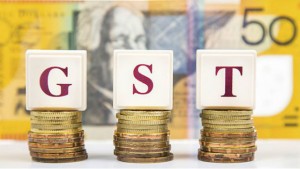Home » Commentary » Opinion » Turnbull laid the groundwork for SA’s bank levy, but he should now think about withholding GST from the state
· BUSINESS INSIDER

 The South Australian state budget tabled yesterday provides further confirmation that Australian fiscal policy is on a slippery slope to ruin. In particular, the new tax on major bank liabilities — intended to replicate the (also new) equivalent Commonwealth tax and to raise $90-100 million a year — is one part political chicanery and another part economic irresponsibility.
The South Australian state budget tabled yesterday provides further confirmation that Australian fiscal policy is on a slippery slope to ruin. In particular, the new tax on major bank liabilities — intended to replicate the (also new) equivalent Commonwealth tax and to raise $90-100 million a year — is one part political chicanery and another part economic irresponsibility.
Whatever else the Weatherill government has done to appear business-friendly — such as trim payroll tax — the audacious new bank tax shouts to anyone listening that businesses considering investment in South Australia should be alert to the risk of capricious and politically cynical treatment by the state government.
It is ironic and sad that this should be the case when, of all the states, it is the South Australian economy that faces the biggest struggle. At the root of the new tax is South Australia’s addiction to government spending. The state has done well out of the GST — it receives a share well in excess of its population share — but it has an insatiable appetite for yet more revenue.
It has traditionally been the highest taxing state. That is because it is also a big spending state, and this election year budget ratchets up the spending further. It is full of new spending initiatives. Since last year’s budget estimates, policy decisions have added an astonishing $590 million to operating expenditure in the coming fiscal year.
Expenditure is estimated to increase by 5.8 per cent in 2017-18 on the heels of a 5.7 per cent increase in the year just ending. These are very large increases when inflation is as low as it is. They are driving the government’s hunger for more revenue.
Consistent with its high-tax/high-spending record, South Australia has long advocated applying GST to financial services. While this would raise a lot of extra revenue for the states, it is technically difficult, so financial services are currently ‘input taxed’ instead. No state can change that treatment on its own, but South Australia has found its own financial tax.
It has been greatly assisted by the Turnbull government’s ill-conceived new tax on major banks’ liabilities announced just last month, which — along with the accompanying new regulations and anti-bank rhetoric — have helped legitimise the South Australian action in a political sense.
But South Australia should not be allowed to get away with reneging on its commitments under the GST deal. As part of the intergovernmental agreement to allocate all GST revenue to the states and territories, they agreed to abolish a raft of inefficient and distorting financial taxes and never reintroduce them.
The new bank tax is not the same as the abolished taxes, but it is similarly inefficient and distorting and at least violates the spirit if not the letter of the intergovernmental agreement. The Commonwealth could make a strong case for withholding from South Australia an amount of GST revenue equivalent to the state’s new bank tax. The current federal government, however, has severely compromised its own moral authority on this issue, having itself started the ball rolling.
For this reason, the banks cannot count on the federal government as a strong and effective ally. They will need to mount whatever constitutional challenge may be possible, and hope the Weatherill government loses the state election due next March. Weatherill, however, will probably relish a fight with the banks — and Turnbull if he is up for it — as a distraction from his state’s economic woes in the led-up to the election.
Notwithstanding the attractions of full-blooded competitive federalism and greater fiscal autonomy for the states — which I have long advocated — there is no place in states’ tax systems for this kind of tax. South Australia needs to curb its spending appetite, not introduce damaging new taxes and break intergovernmental agreements. This, along with any legal challenge, is the case that has to be made.
Robert Carling is a Senior Fellow at the Centre for Independent Studies
Turnbull laid the groundwork for SA’s bank levy, but he should now think about withholding GST from the state